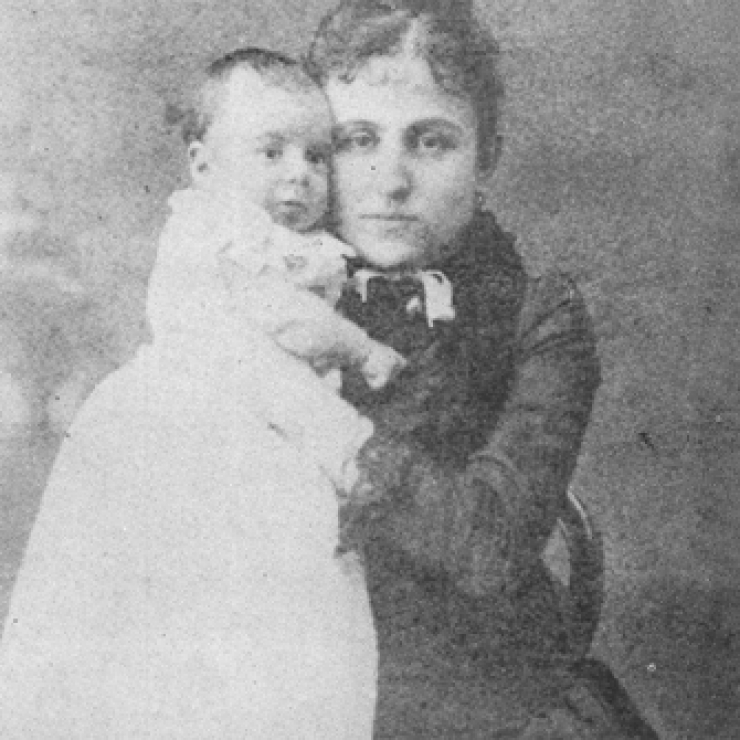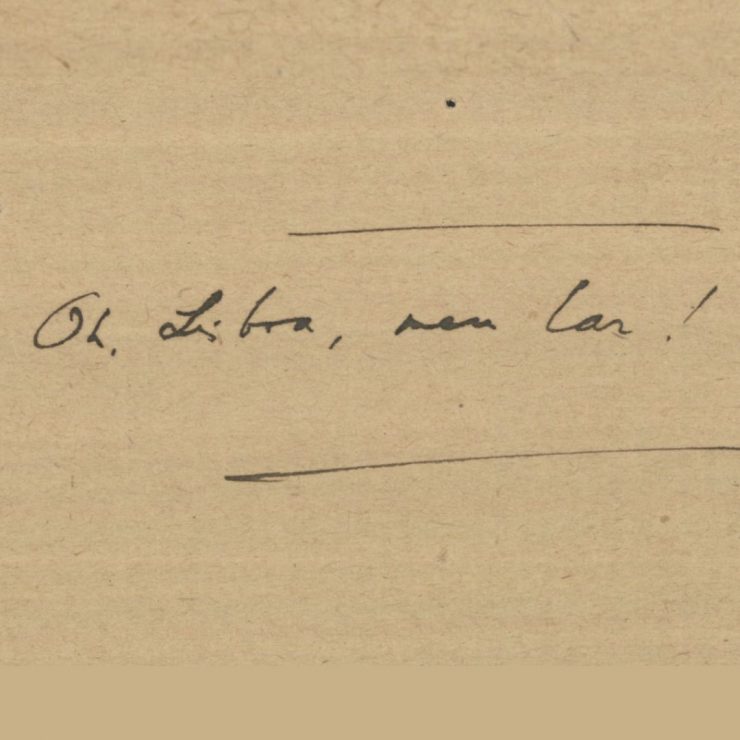Mensagem is the only book of poems, written in Portuguese, that Fernando Pessoa published during his life, in 1934. The edition is linked to the Antero de Quental Award, with which the book was awarded that same year. This is a widely known book in Portugal, albeit not quite so outside the country, despite being one of Pessoa’s most important works. Such asymmetry may be explained by the fact that Mensagem is a book that, on the surface, only talks about the Portuguese (and to the Portuguese). In fact, the book is made up of 44 poems, each one of them dedicated to a great figure of the history, cultural and myths of Portugal. On this aspect, we know that Pessoa wanted to call the book “Portugal”, but that he later changed his opinion.
In this article, we want to show that, from a different perspective, this book contains universal verses, sentences and messages, directed at everyone. It contains, therefore, passages of high literature, which may, in our opinion, touch the soul, heart and mind of all humans, from every place and period of time. This probably was, in our opinion, Pessoa’s true and highest intention when he wrote these poems, as in fact the title – Mensagem – suggests, since it hides within itself the initial letters of the Latin verse «Mens agitat molem» (“Mind over matter”), written in Virgil’ Aeneid. Therefore, we invite you to read five of Pessoa’s universal verses, in Mensagem, with our personal interpretation, which is open to other readings.
Happy reading!
1. «Myth is the nought that means all.»
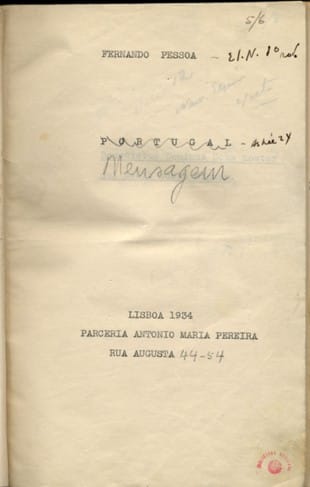
The verse opens the poem dedicated to “Ulysses” and is one of the most famous poems in the book. By evoking the Greek hero as the mythical founder of the city of Lisbon (once called Olisipo, the name that Pessoa chose for a publishing house he founded), the writer is underlining the link between Portugal and the ancient Greek culture, the Mediterranean and paganism. Furthermore, the verse has, within itself, its own literary and philosophical force. If the myth is perceived as the holy or the holy word, one interpretation would be that the holy, even if invisible or ineffable (nough, but only in our limited mind), penetrates everything. This metaphysical reading may be joined by a different one, among many other possible readings: if the myth is literature as fiction (“The poet is a faker”, wrote Pessoa), therefore, we might say that, according to Pessoa, even being “nought” – i.e., not being real – it is literary fiction, art that drive civilizations forward.
2. «God wills, Man dreams, the Work is born.»
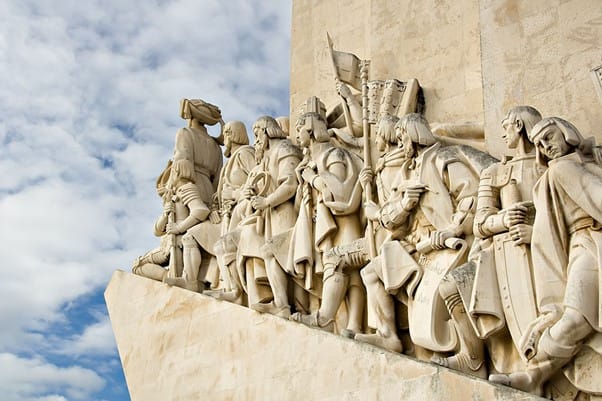
This is a statement that has already entered the Portuguese collective phrasebook, simultaneously designating an entire vision of life and of art, that Pessoa synthesizes in a handful of incisive words. The verse starts the poem “Prince Henry”, which celebrates Prince Henry the Navigator (1394-1460) as the first man that unified the Earth with the Discoveries’ maritime voyages. A dream – unifying the globe -, giving rise to its concrete accomplishment, which in turn may only happen, however, if God himself with his will declares so. Under this perspective, we must focus our attention in the theme of dreams – which, in Pessoa, is a concept close to art, literature, imagination – because it seems that here Pessoa is saying that when God wants humans to do something, they may only do such things if they are able to dream. The dreams of humans as an intermediary passage to the accomplishment of the work of God in the world. This is the mystical aspect of Mensagem.
3. «The soul is divine and the work imperfect.»
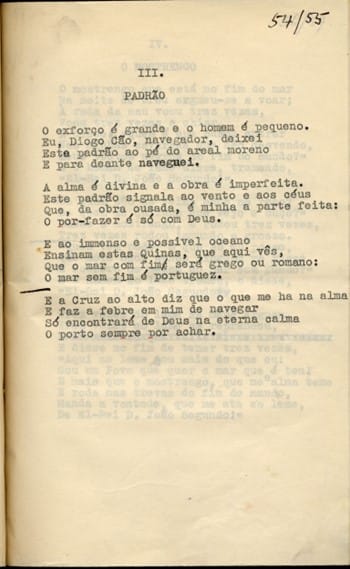
Somewhat in line with the previous verse, this one, which may be found in the poem «Padrão», dedicated to Portuguese navigator Diogo Cão, reflects another of Pessoa’s observations on human beings. Humans have a divine soul, i.e., an essence, a nature that is celestial, luminous, perfect. Notwithstanding, their work in the world is fatally imperfect, incomplete, unfulfilled, even when fulfilled in human eyes. Why? Perhaps because nothing earthly may compare to the celestial perfection, which Pessoa often seems to platonically miss.
4. «Everything is worthwhile/If the soul is not small.»

This is one of the most often quoted and celebrated sentences of Fernando Pessoa, not just Mensagem. We find it divided across two verses of the famous poem «Mar Português», which represents the certainty that every undertaking is worthy of effort and sacrifice, as long as such undertaking is based on and clad by an adamantine nobleness, which is a characteristic of great souls. Souls that strive to find and develop within themselves (and through themselves) the best of humanity and life, longing for great horizons, not only outside themselves, but also – and mainly – within. Somehow, these verses, as the others quoted here, speak volumes of Fernando Pessoa as an individual that devoted his entire life to literature, making great personal sacrifices because he anticipated the greatness of his mission, his fate and the impact he would have in universal culture. He was, in fact, another Portuguese and universal navigator. Not of oceans, but of soul(s).
5. «’Tis the hour!»
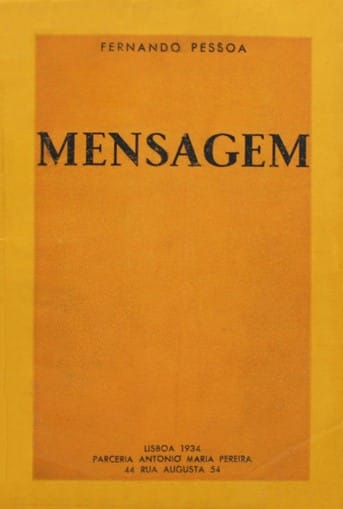
Closing the poem «Nevoeiro», this exclamation seals one of the poems most intimately linked to the mythical and legendary narratives of Portugal, more specifically the image of the expected return of King D. Sebastião, who disappeared in 1578 and who according to the legend would one day return “in a misty morning”. As we have already mentioned in another article on this blog, the return of this king becomes, in Fernando Pessoa, a metaphor for the beginning of a new and future cultural era of humankind. An era of synthesis between cultures and the universal triumph of art, culture and poetry. Some, including philosopher Paulo Borges, interpret this new era as being a new spiritual era of humankind, with a greater, wider and deeper conscience. In any event, if one reads the verse “‘Tis the hour!” under a universal sense, not merely connected to the history of Portugal, one sees that this is a plea that Pessoa makes to readers, who should immediately achieve their best, in the here and now in life, regardless of their status and situation.
Fabrizio Boscaglia
Please note: the Lisboa Pessoa Hotel wants to honour the book Mensagem, by Fernando Pessoa, and dedicated the restaurant & panoramic bar Mensagem, on the fifth floor of the hotel, to this work and to Lisbon, as an intimate and cosmopolitan city.



